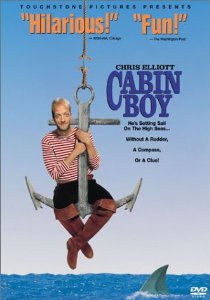P
pfdigest
Guest
Writing in the USA Today, “consumer advocate” Christopher Elliott has this lovely little passage in an article about travel hacking:
Another well-known hack involves signing up for a credit card that allows you to collect frequent-flier miles and then buying items such as gift cards only for the bonus points, known as “manufactured spending.” Then you convert the the item back into cash and pocket the points.
Again, it’s totally legal — and totally wrong. The cards are meant to reward real spending. Exploiting these payment systems only forces the companies offering them to tighten their rules, which can affect all cardholders.
This is a rather silly thing to say for somebody whose byline identifies him as a “consumer advocate”. Apparently the man on the street is first supposed to divine the pure, true, and real meaning behind credit card rewards programs, and then to leave money on the table when actions are opposed to that meaning.
Are banks somehow coerced by evil consumers into handing over points and miles? No. Generous credit card bonuses are a gamble on the part of banks, the gamble being that interest income and fees will be greater then interest expense and bonuses. Banks are free to convey “meaning” to consumers by reducing or capping the bonuses at any time.
And note that banks like to use the word “unlimited” in their marketing copy (see here and here). In marketing promotions, you want to maximize the perceived value (hence “unlimited”) while minimizing the actual cost. If they don’t want people getting unlimited rewards, then they shouldn’t market unlimited rewards.

No, not that Chris Elliott, the other one
(H/T: TBB)
Continue reading...
Another well-known hack involves signing up for a credit card that allows you to collect frequent-flier miles and then buying items such as gift cards only for the bonus points, known as “manufactured spending.” Then you convert the the item back into cash and pocket the points.
Again, it’s totally legal — and totally wrong. The cards are meant to reward real spending. Exploiting these payment systems only forces the companies offering them to tighten their rules, which can affect all cardholders.
This is a rather silly thing to say for somebody whose byline identifies him as a “consumer advocate”. Apparently the man on the street is first supposed to divine the pure, true, and real meaning behind credit card rewards programs, and then to leave money on the table when actions are opposed to that meaning.
Are banks somehow coerced by evil consumers into handing over points and miles? No. Generous credit card bonuses are a gamble on the part of banks, the gamble being that interest income and fees will be greater then interest expense and bonuses. Banks are free to convey “meaning” to consumers by reducing or capping the bonuses at any time.
And note that banks like to use the word “unlimited” in their marketing copy (see here and here). In marketing promotions, you want to maximize the perceived value (hence “unlimited”) while minimizing the actual cost. If they don’t want people getting unlimited rewards, then they shouldn’t market unlimited rewards.

No, not that Chris Elliott, the other one
(H/T: TBB)
Continue reading...
